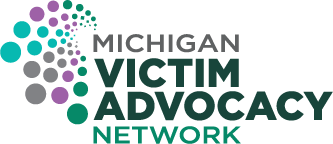A program, organization, or system that is trauma-informed recognizes the widespread impact of trauma in clients, families, staff, and others involved with the system and understands potential paths for recovery. Trauma-informed advocacy fully integrates knowledge about trauma in policies, procedures, and practices and seeks to actively resist re-traumatization.

Trauma-Informed Practices
Becoming a Trauma-Informed Advocate Animation (14 min)
This brief animated video will provide a foundational overview, address common misconceptions, and introduce SAMHSA’s 6 key principles of a trauma-informed approach. A resource library for more in-depth learning is included. Animation by Chickadee Films. [14 min]
Login to watch the full video. Watch the trailer here:
SAMHSA 6 Principles of Trauma-Informed Care
This fact sheet, developed by the Substance Abuse and Mental Health Services Administration, describes the 6 principles of trauma-informed care. [1 page]
SAMHSA’s Concept of Trauma and Guidance for a Trauma-Informed Approach
This manual introduces a concept of trauma and offers a framework for becoming a trauma-informed organization, system, or service sector. The manual provides a definition of trauma and a trauma-informed approach, and offers 6 key principles and 10 implementation domains. [27 pages]
MiVAN’s Trauma-Informed Workshop Materials
Recognizing when someone may be experiencing a trauma response such as getting triggered is an important advocacy skill that can help prevent re-traumatizing survivors and promote recovery and healing. These concrete tools can be used to respond to trauma by helping a survivor learn to regulate trauma reactions through breathing and grounding exercises. Learning these exercises can be an empowering way for survivors to move forward through their healing. These exercises can also be used by advocates to center themselves after an appointment and to mitigate the effects of vicarious trauma. Visit Lesson 6 of the Trauma Across the Lifespan series for more details about when and how to use these tools in practice.
- Grounding techniques – This document overviews four grounding exercises (5-4-3-2-1, Categories, Body Awareness, and Mental Exercises) that can help someone refocus on the present moment. [2 pages] Español
- Deep breathing – This document give an explanation of what deep breathing is, how it works, and provides instructions for how to engage in the exercise. [1 page] Español
- Progressive muscle relaxation – This guide provides a script for walking someone through a progressive muscle relaxation exercise. Remember to other trauma-informed care skills such as providing choice. [1 page] Español
- Relaxation script for younger children – This document offers language for walking a younger child through a progressive muscle relaxation exercise. [1 page]
- Exercises for grounding, emotional regulation, and relaxation for children and their parents – This documents provides six exercises that can be used with children to help them learn to self-regulate (Draw a safe place, Bedtime beads, Deep breathing, Personal thermometer, SOS, and Progressive muscle relaxation). [3 pages]
Skills for Responding to Sexual Assault
The University of Texas at Austin Institute on Domestic Violence & Sexual Assault released five evidence-based videos as victim-centered resources to enhance coordinated community sexual assault response efforts. These videos support training and education for a broad range of professionals, including municipal and campus law enforcement, prosecutors, victim services professionals, and advocates. The videos discuss issues as diverse as consent, the neurobiology of trauma, and alcohol and drug use.
- Neurobiology of Trauma in Sexual Assault Cases [13 min]
- Intimate Partner Violence and Sexual Assault [9 min]
- Alcohol and Drugs in Sexual Assault Cases [9 min]
- Sexual Assault Response Collaboration [7 min]
- Sexual Assault and Consent [10 min]
This effort is part of IDVSA’s Compendium of Resources on Sexual Assault (CORSA) Project, a resource widely available that was developed to enhance coordinated community responses to sexual assault.
A Systematic Review of Trauma-Focused Interventions for Domestic Violence Survivors This paper reviews the trauma-based treatments that have been designed or modified specifically for intimate partner violence survivors and provides cautions and recommendations for moving forward.
Detailed guide outlining the following advocacy skills:
- Advocates understand sexual violence, including the intersections and differences with domestic violence and other types of violence.
- Advocates know the effects of trauma on survivors.
- Advocates acknowledge and own their personal beliefs about and experiences with sexual violence.
- Advocates show respect and caring.
- Advocates encourage survivors’ self-determination and autonomy. Advocates collaborate with survivors.
- Advocates assess the situation and respond appropriately.
- Advocates create safe avenues for conversation.
- Advocates employ culturally relevant responses.
- Advocates engage in self-reflection and evaluation of services.
- Advocates care for one another and ourselves.
Trauma-Informed Social Policy: A Conceptual Framework for Policy Analysis and Advocacy
This paper describes how policy can better reflect 6 core principles of trauma-informed care: safety, trustworthiness and transparency, collaboration, empowerment, choice, and intersectionality. This framework conveys a politicized understanding of trauma, reflecting the reality that trauma and its effects are not equally distributed, and offers a pathway for public health professionals to disrupt trauma-driven health disparities through policy action.
Tips for Using Trauma Informed Practices Scale
Español
Brief guide created to assist nonprofit domestic violence programs and similar organizations interested in using the Trauma Informed Practices (TIP) Scales to examine and improve upon their work. [30 pages]
16 Trauma-Informed, Evidence-Based Recommendations for Advocates Working with Children Exposed to Intimate Partner Violence
Brief guide that advocates may use to assess areas in which they already excel and determine the areas in which they would like to further develop. Program staff may wish to adapt the focus on a single child or family to work with a group of children. The primary aim of the recommended approaches is to build resilience and competence in children and parents. [12 pages]
Creating Trauma-Informed Services A Guide for Sexual Assault Programs and Their System Partners
A brief guide for how to work with service providers from all disciplines (medical and mental health, law enforcement, the courts, education, child welfare, and advocacy) on working with survivors to overcome barriers by creating trauma-informed services. This guide outlines what you need to know to develop trauma-informed services, what systems partners whose primary focus isn’t trauma need to know, and suggestions for cross-training with system partners. [12 pages]
Historical and Generational Trauma Webinar
The purpose of this webinar is to engage clinicians, community leaders, researchers, and instructors in examining specific topics related to children’s mental health, and to close the research-practice gap. The overall goal is to strengthen children’s mental health practice and policy by promoting use of evidence.
Presenters: Elder Atum Azzahir (Executive Director of Cultural Wellness Center), BraVada Garrett-Akinsanya, PhD (Executive Director of African American Child Wellness Institute), Jessica Gourneau (Clinical Psychologist at American Indian Family Center), and Melissa Walls, Ph.D. (University of Minnesota).
To get credit for watching this training on MiVAN.org, click here.
Below are segments from the webinar that provide helpful summaries:
- What is Historical Trauma? [6 minutes]
- How do People Experience Historical Trauma? [6 minutes]
- What is Cultural Healing? [5 minutes]
Trauma-Informed DV Advocacy
Webinars and tipsheets from the National Center on Domestic Violence, Trauma, and Mental Health for adopting a trauma-informed approach to domestic violence advocacy.
Trauma Informed Principles through a Culturally Specific Lens
This document was developed by the National Latino Network. It is a resource for defining the principles of trauma-informed work through a Latinx culturally specific lens, but is also applicable more broadly. [12 pages]
Re-Traumatization Chart
Infographic illustrating system and relationship dynamics that are often experienced as being re-traumatizing. [1 page]
Building Cultures of Care: A Guide for Sexual Assault Services Programs
This guide provides information to support sexual assault services programs in strengthening their organizational and individual responses to survivors of sexual violence through the use of a trauma-informed approach. It provides an overview of the core principles of trauma-informed care and guiding points and questions to help organizations build cultures grounded in the philosophy of trauma-informed service delivery. [56 pages]
7 Tips for Providing Trauma-Informed Care to Latin@ Survivors of DV
“Keep the realities of Latin@ survivors and their children central to your work, educate yourself about intersectionality, and promote cultural healing.” [1 page]
How to Implement Trauma-informed Care to Build Resilience to Childhood Trauma
This brief summarizes current research and promising practices for implementing trauma-informed care to support the well-being of children exposed to trauma and help them reach their full potential. The brief begins with an overview of the nature, prevalence, and impact of childhood trauma, followed by a discussion of related risk factors associated with poor child outcomes and protective factors that support resilience.
Culture and Trauma Resources
Extensive hub of resources related to trauma and culture from the National Child Traumatic Stress Network.
Empowering Children in Shelter: Woksape Un Kpazo Pi (We are showing it through wisdom)
The Native Women’s Society of the Great Plains developed a culturally specific curriculum for advocates to use in shelter when working with Native children. This webinar will introduce the curriculum which uses culturally relevant skills and knowledge with a focus on safety, self-esteem, and family empowerment. [90 minutes]
Building Trauma-Informed Services for Children, Youth, and Parents Impacted by Domestic Violence
10-part webinar series for domestic violence advocates, supervisors, and mental health clinicians working in DV programs. Through this series, participants will gain enhanced understanding and practical strategies for supporting survivors and their children to address challenges, promote resilience, and heal from the traumatic effects of interpersonal violence. [NCDVTMH, ten 90-min webinars]
How can victim advocates utilize self-assessment tools as an empowerment strategy in practice?
This short article has links to self-assessment tools for measuring resilience, measuring assets, and measuring strengths as a form of empowerment.
Is it Burnout or Moral Injury?
Women’s Resource Center will help us understand the critical difference between burn out and moral injury. It will help us see how burn out in and of itself is a symptom of something larger. It will guide us in strengthening our resilience and more accurately understand the impact of the work we are doing on our well-being as advocates. [90 minutes]







